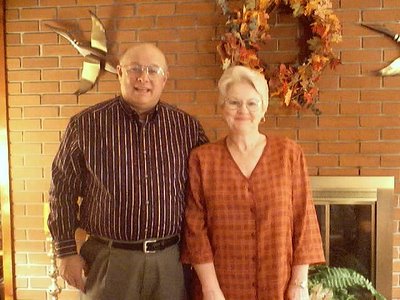Isaiah 43:18-25Psalm 412 Corinthians 1:18-22Mark 2:1-12
Are You Paralyzed by Sin? Jesus says,
“Get Up! And Go On With Your Life!”
1 Jesus had been traveling from village to village, proclaiming the good news of the reign of God, and taking respite in deserted places, but then he
returned to Capernaum after some days. He makes Capernaum his base of operations, staying in a house there. Word of his return spreads quickly through Capernaum:
it was reported that he was at home.
2 Once before, Peter's house and courtyard were mobbed by those who wanted to hear and be healed by Jesus, and now it happens again:
many gathered around that there was no longer room for them, not even in front of the door No wonder Jesus had to repeatedly search out deserted places to have a little privacy! Yet he did not turn away those who came to him, even though their constant presence and needs must have been a drain on his energy.
What does Jesus' availability to others tell us about him? What does it say about his availability to us?
Jesus
preached the word to them: the presence of a crowd is an opportunity for him to carry out the purpose for which he has come. He proclaims
the word: he has returned to Galilee to proclaim the gospel of God, the good news that the reign of God is at hand. Later he will speak "the word" in parables; perhaps he used parables of the kingdom on this occasion as well.
3
Then some people came, bringing to him a paralyzed man, carried by four of them. The four are presumably relatives or friends of the paralyzed man. The man needs Jesus' healing of his paralysis, but his paralysis has kept him from coming to Jesus. Likewise, we can find ourselves spiritually paralyzed, keeping us away from the one who can forgive us and make us whole. Those who love the paralyzed man do for him what he cannot do for himself: they bring him to Jesus. We too may need the help of others to come to Jesus—and we too may be able to extend tat help to others.
4
When they could not bring him to Jesus because of the crowd, they removed the roof above him; The man's paralysis is not the only obstacle; there is also an impenetrable crowd surrounding Jesus. There is a way to get around the crowd, but it is not an easy one. Jesus' house had a flat roof made of wooden beams overlaid with branches, thatch, and packed earth. An outside stairway or ladder led to the roof, which was used a a place to sleep on hot nights and to dry crops. Those carrying the paralyzed man take him up onto the roof, and
after having dug through it, they let down the mat on which the paralytic lay. It would have been easy to break through the clay and thatch and make an opening between two beams—but also very messy; some of the debris must have fallen on those inside the house. Those who want to bring the paralyzed man to Jesus are willing to do whatever it takes.
Who do you want to bring to Jesus? What obstacles stand in the way? What are you willing to do to overcome these obstacles?
5 Jesus could have been annoyed by those who were interrupting his preaching by showering debris on him and his audience, but he is not. His focus is different: he
saw their faith, a faith expressed by deeds rather than words. Their going to unusual lengths to bring the paralyzed man to Jesus for healing demonstrates their confidence in Jesus.
What Jesus does next seems puzzling:
he said to the paralytic, "Son, your sins are forgiven." The four men have brought the paralyzed man to Jesus for healing, not for forgiveness of his sins; nothing has been said about this man being a sinner. Yet there are connections between healing and forgiveness. In Old Testament times, sickness was often viewed as evidence of and punishment for sin. This belief was still held by some at the time of Jesus.
As he walked along, he saw a man blind from birth. His disciples asked him, "Rabbi, who sinned, this man or his parents, that he was born blind?" John 9:1-2
Jesus did not endorse this view, but neither did he hold that sickness and sin were completely unrelated: both were the presence of evil. Sin is a sickness deadlier than any physical illness; sin is a paralysis tat keeps us from coming to God. Jesus was concerned for the whole person and discerned that forgiveness was the greatest need of thee man who had been brought to him.
Jesus addresses the man as
son, a term of affection. Jesus says,
Your sins are forgiven. This might be interpreted as Jesus saying, "God has forgiven your sins," much as Nathan announced God's forgiveness to David in 2 Samuel 12:13)
David said to Nathan, "I have sinned against the LORD." Nathan said to David, "Now the LORD has put away your sin; you shall not die.
But what follows indicates that Jesus pronounced the man's forgiveness as if Jesus was the one doing the forgiving. Further, Jesus granted forgiveness apart fro the procedures set down in the Old Testament for obtaining forgiveness, particularly through he making sacrificial offerings at the Temple. Something very new and very different has just happened in Jesus' home.
Are You in any way paralyzed by sin? Does Jesus look on us with affection, despite my sins? How have You experienced his forgiveness.
6
Now some of the scribes were sitting there. This is the first mention of any interaction between
scribes and Jesus. Scribes were scholars and teachers of the law of Moses. They react as if Jesus has just said something extraordinary, and they are
questioning in their hearts about it.
7 The scribes wonder to themselves,
Why does this man speak in this way? It is blasphemy. Who can forgive sins but God alone? Not only has Jesus pronounced forgiveness apart from all established procedures, but he is also claiming to do something that only God can do. Consequently the scribes accuse Jesus of
blasphemy by claiming a prerogative of God. The charge of blasphemy will also be leveled at Jesus during his hearing before the Sanhedrin in Mark 14:61-64. It is a serious charge: Leviticus prescribes that blasphemy be punished with death by stoning: Leviticus 24:15-16
And speak to the people of Israel, saying: Anyone who curses God shall bear the sin. One who blasphemes the name of the LORD shall be put to death; the whole congregation shall stone the blasphemer. Aliens as well as citizens, when they blaspheme the Name, shall be put to death.
Who can forgive sins but God alone? is indeed the issue, and the answer is that Jesus can. God forgives sins through Jesus.
8
At once Jesus perceived in his spirit that they were discussing these questions among themselves; Does this simply mean that their faces gave them away to a perceptive observer like Jesus? Jesus would have been well aware that his pronouncing forgiveness of sins would be jarring to Jewish scholars, for there was no basis in Jewish Scripture or tradition for a human being to grant divine forgiveness. Or is Mark hinting that Jesus had more than human knowledge of the thoughts of those around him? It is not easy to decide simply on the basis of this passage. However Jesus came to know what the scribes were thinking,
he said to them, "Why do you raise such questions in your hearts?" and proposed a test.
9
Which is easier, to say to the paralytic, "Your sins are forgiven," or to say, "Stand up and take your mat and walk?" We can interpret
easier in two senses. A physical healing, although miraculous, is in a sense easier than a spiritual healing. Elisha, the great wonder-worker of the Old Testament, performed some wonderful deeds but never claimed he could forgive anyone's sins. Neither had John the Baptist claimed he could forgive sins, despite his preaching of repentance. On the other hand, it is certainly easier to
say to a paralytic,
Your sins are forgiven than to say to him,
Stand up and take your mat and walk, for no one could observe the forgiveness of sins, but anyone could tell whether a paralyzed man got up and walked. Jesus proposes the latter as the test for the former: if he is able to heal the man of his paralysis, then that should be a sign that he is able to forgive his sins as well.
10
But so that you may know that the Son of Man has authority on earth to forgive sins. This is the first time that Jesus refers to himself as
the Son of Man. It is a description or title that Jesus will use often for himself, and it can carry different shades of meaning. Son of man is an Aramaic idiom for human being, and thus Jesus might be using it simply as a way of saying "I". But it also has other associations, particularly of a heavenly "one like a son of man" in the book of Daniel who is given authority by God. Jesus uses
the Son of Man in a complex way, referring to himself as a human being who has been given extraordinary authority by God, the
authority to forgive sins on earth. Jesus brings God's forgiveness to
earth as God's unique agent.
That you may know... echoes Old Testament text in which God says he will do something that will demonstrate his might. Jesus is about to make a similar unmistakable demonstration of his
authority.11
He said to the paralytic, "I say to you, stand up, take your mat, and go home." The word translated
stand up is the same word that will later be used for rising from the dead: the man's rising from his his paralysis is a sign of much greater rising to new life in store for us through Jesus.
Pick up your mat, for you will no longer need it to lie on all day long.
Go home and begin your new life.
12 The man is able to do as Jesus commands because of Jesus' command.
He rose, picked up his mat at once, and went away in the sight of everyone. He was carried in on a
mat; now he leaves carrying it—a sign of complete change Jesus has made in his life, spiritually as well as physically. His healing happens
at once, and it is manifest
in the sight of everyone. The people in turn
were all astounded and glorified God. Again, people are astonished by what Jesus does; they now have a somewhat fuller realization that he is God's agent, and consequently they
glorified God for working through Jesus. They say,
We have never seen anything like this, yet at least some of them had to have witnessed Jesus' previous healings and exorcisms in Capernaum. What sets this particular healing apart from Jesus' previous healings has to be its link with Jesus' forgiving the man's sins: no one had ever claimed to forgive sins and backed up tat claim with a demonstration of authority.
We might wonder whether the scribes were among the
all who were astonished by what Jesus had done and praised God for it. Subsequent events will indicate that they probably did not join in in the acclaim for Jesus, despite his clear demonstration of authority.
Has Jesus made a dramatic difference in your life—as life-changing as being freed of paralysis? Do you praise God for what he has done for you through Jesus?







